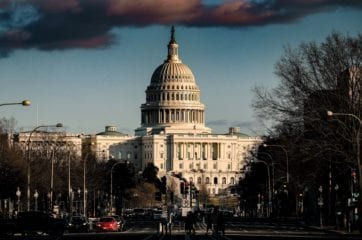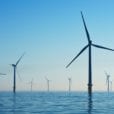The World Economic Forum (WEF) held its annual summit in the Swiss Alps last week, where the world’s economic and political elite meet to discuss the world’s most pressing issues. A key topic of discussion this year was climate change.
The WEF released its global risk report ahead of Davos, which denotes extreme weather events, natural disasters and failure of climate change mitigation and adaptation in the alarm zone for both likelihood and impact. The report positioned climate change as a hot topic among keynote speakers and government representatives appearing in event panels – notably India’s Prime Minister, France’s President Emmanuel Macron and Chinese economist Liu He. They were among many who positioned their nations as champions in addressing climate threats as economic opportunities.
Donald Trump delivered the closing speech of the summit on Friday, and as expected, his remarks completely ignored climate issues all together. He instead pushed his ‘America first’ policy to the mostly liberal, pro-globalization, environmentally conscious audience. CABA advisory board member Helen Mountford reported from Davos that “a lot of people deliberately left on Friday lunchtime because they did not want to be around for his speech.” She also noted the emphasis Trump gave throughout his address to the creation of American jobs.
It is ironic, to say the least, that the president insists on focusing on increased investment, jobs and economic growth in the United States while ignoring the one sector that is most rapidly generating all of those: renewable energy.
In 2016, solar energy was creating American jobs at 17 times the rate of the national economy, totalling over 260,000 jobs that year. Twice as many Americans now work in the wind industry as in coal mining and renewable energy jobs overall have seen explosive growth over the past three years.
While the volatile political climate makes for some uncertainty in the renewable market, these technologies are here to stay, and they will continue to grow. With America bowing out of the race, however, that growth will be someone else’s gain. It will be the countries championing and embracing the industry who will stand to gain the most, such as China, India and the European Union. This is the biggest irony of the current Administration: while boasting about the urgent need to make America ‘great again’ by regaining economic competitiveness and ending what it deems to be ‘unfair trade deals’ it may in fact be giving others the competitive advantage.
India’s Narendra Modi opened the summit with a keynote speech on Monday that took a dig at Trump’s isolationist policies and echoed much of what Xi Jinping said at the same forum last year. Namely, that there is a pressing need to move towards renewables and that the challenges of climate change need to be tackled by the international community acting united. Modi called climate change the “greatest threat to the survival and human civilization” and pledged to expand India’s renewable energy sector and produce 175 gigawatts of renewable energy by 2022.
His sentiments were echoed by Liu He, Chinese economist and key advisor to President Xi Jinping, who restated China’s commitment to battle pollution and invest in green technologies. Last year, China unveiled a massive investment program for green energy and renewable technology that aims to spend over $360 billion by 2020 and create at least 13 million Chinese jobs, while curbing greenhouse gas emissions. Once regarded as one of the major world polluters and potentially the ‘spoiler’ of climate agreements, China has now come out as one of the leading powers in investment and research into clean energy sources, alongside European powers. It’s awkward that Trump champions himself as placing America ahead from other economic powers – most notably, China – while giving them the upper hand when it comes to green technologies.
With an Administration in Washington that’s busy denying the science of climate change, China will be able to develop the technology and knowledge the rest of the world will be buying in the coming decades, and therefore securing itself as the champion of climate action innovation. Forget about debating the science, the economic sense of investing in renewable technology is already sound, as demand will only keep growing. So if Trump is so adamant on protecting American economic interests and placing its economy ahead, it’s time to stop giving China, India and the EU a head start on the industry of the future.
 MARIA VIRGINIA OLANO POLICY AND RESEARCH FELLOW
MARIA VIRGINIA OLANO POLICY AND RESEARCH FELLOW
Maria Virginia is a young professional with experience in non-profit and coalition organizing in the areas of disarmament and human rights. She is currently pursing a Masters degree in Security and Resilience Policy at Northeastern University, where she also completed her undergraduate degree in Political Science. During her time at Northeastern she studied abroad in Japan, India and Saudi Arabia and worked as a journalism intern in Bosnia Herzegovina and Turkey. She is passionate about travel and photography and in her free time loves to watch movies, eat lots of food and read.









